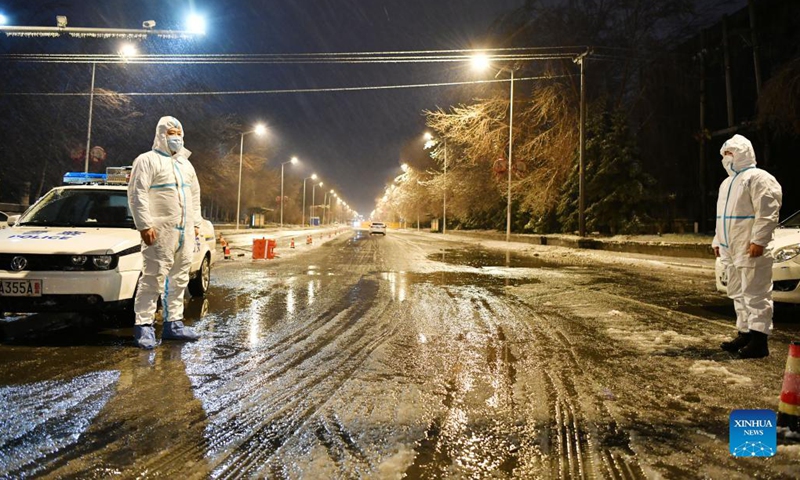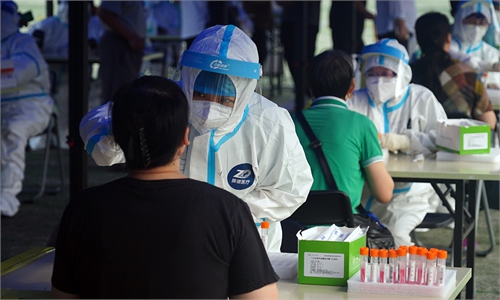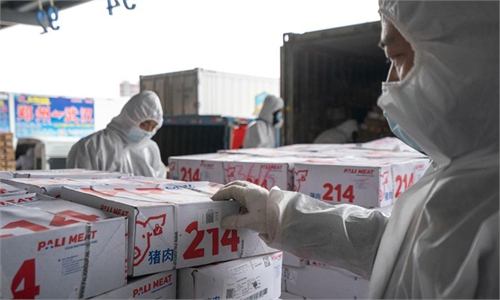China’s dynamic zero-case policy proves effective in preventing viral transmission in communities: NHC expert

Police officers stand guard in freezing rain in Pingfang District, Harbin, northeast China's Heilongjiang Province, Nov. 8, 2021. Despite the low temperature in Harbin, those who work outdoors are braving the cold wind, rain and snow to secure the COVID-19 epidemic prevention and control.(Photo: Xinhua)
China is adopting the dynamic zero-case policy rather than bringing infections to zero in the era of epidemic normalization. The policy is to prevent viral transmission in communities and to find out and treat patients as soon as possible, said Liang Wannian, head of expert panel of COVID-19 response of China's National Health Commission (NHC).
Liang noted that distinct outcomes have been achieved through China's dynamic zero-case route. With that strategy, China is capable of controlling recent flare-ups and minimizing mortality and serious illness while the economy has not been affected by related measures in terms of GDP growth rate and other indicators. The most important part is that despite the wide support of the anti-pandemic measures, people's normal lives are not largely influenced compared with other countries.
Liang raised a question when facing the query on China's epidemic prevention policy. Which one is more effective, adopting loose anti-pandemic measures and sacrificing more lives, or taking strict controlling measures in a single region or city to guarantee normal functioning of many areas?
According to Liang, there are four conditions in the era of epidemic normalization, for example, no local transmitted infections related to imported cases, emergence of sporadic local cases, emergence of partial cluster infection cases in a single location and emergence of sporadic or cluster cases in multiple regions. The dynamic zero-case route is an effective strategy with the lowest cost to control sporadic outbreaks.
By putting people's lives instead of political demands first, China has implemented the dynamic zero-case policy to maintain the normal functioning of society and promote economic development at the same time. The vaccination rate in China has not yet reached the level of building a universal immune barrier. In such context, hastily reopening the border or relaxing the anti-pandemic measures would put in vain China's significant achievements so far.
It depends on the overall international conditions of the COVID-19 pandemic to decide whether to change the current dynamic zero-case policy for China, Liang emphasized. Besides, emergence of new variants, the disease severity and China's vaccination rate would also be considered to adjust the anti-pandemic measures.
Global Times



